How To Speak of Those Who Have Recently Passed
Karl StombergBlockedUnblockFollowFollowingDec 3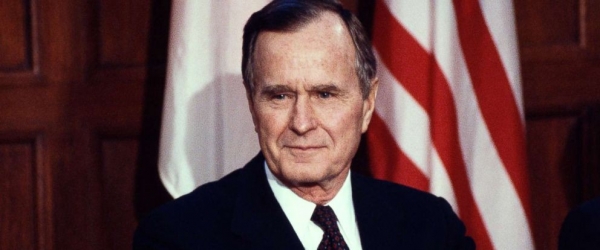
A lot of things happen when a prominent politician dies. First comes the shock. Regardless of how expected a death is, the feeling of someone who has been on the world stage for decades can not be felt before it happens. Then comes the hagiography. The singing of praises for the just departed, and the exultation to a near god-like status. Then comes the backlash. The manic celebration, and the insistence of the complete moral rot of the individual who just passed on.
In the age of social media, this will always happen. We can’t control it. But what we can control is what happens after the dust settles, how we speak of the dead after the initial shock passes.
The day after George HW Bush died, the AP released a tweet and corresponding article, giving a brief overview of his presidency and life as a whole.

The backlash was enormous. Mentioning the negative aspects of Bush’s presidency at the same level as the positive aspects was seen as completely over the line, and there was no mention of who he was as a person in either the tweet or the first paragraph of the article. Eventually, the tweet was taken down and replaced with an apology.
The apology was not related to any actual factual error in the article, or the omission of any part of his life. Every important aspect of his life was in the article, and there was nothing factually incorrect. Rather, the apology references the prioritization of the different aspects of Bush’s life, the bad at the same level as the good. But even in the responses to this tweet, people were still completely aghast, completely floored by the fact that they would have the gall to include the negative aspects of Bush’s life in what amounted to his obituary.
On a certain level, it makes perfect sense. If you are attending a funeral or writing an obituary for a friend or relative that you know in your life, you’re not going to lead with all of the horrible things they did and all their failures they had in their lives. But for the vast majority of us, we did not know George HW Bush personally. He was not a close friend, a father, or an uncle. He was the president of the United States, and the actions that he took affected the lives of millions of people across the world. When we speak at a funeral, we talk about the many ways that the recently departed have affected out lives. When it comes to public figures like Bush, this can mean a lot of good, but it can also mean a lot of bad.
There were some things that George HW Bush that were unequivocally good. The Americans with Disabilities Act is perhaps the most important piece of legislation in the history of disability rights, and Bush played a crucial role in its passage. He also played a major role in seeing a peaceful end to the Cold War in the early 1990s, a role that even his former opponent Mike Dukakis praised.
Bush also did many things that, while debatable on their merit, undoubtedly took a deal of political courage. After boisterously making the promise during his campaign to never raise taxes, he was faced with a recession and a major deficit a few years into his term. While he initially tried to push for pure spending cuts, he did eventually agree to an arrangement and signed a budget that raised a number of taxes. By doing so, he limited a skyrocketing deficit and avoided potentially making the recession even worse. And he did so at the expense of his political career.
However, there were several things that George Bush did that were not only bad, but borderline indefensible. He continued the Reagan policies that worsened the AIDS crisis, banning HIV+ people from entering the country and reducing funding for the issue. Over 100,000 people died of the disease during his presidency, a scar which still haunts the gay community to this day. He led the invasion into Iraq, and ordered atrocities such as the Highway of Death and the bombing of the Amiriyah shelter. After a US ship illegally shot down a commercial airliner over Iran in 1988, he stated “I will never apologize for the United States of America. Ever. I don’t care what the facts are.” He also played a role in the Iran-Contra scandal during Reagan’s administration, and pardoned many of the key players once he took office.
Outside of office, there were several bad things as well. As the head of the CIA, he helped oversee Operation Condor, the effort to violently repress left-wing sympathizers across South America through the funding of right-wing dictators and paramilitary organizations. During his presidential campaign, he ran the infamous Willie Horton ad, blatantly race-baiting his opponent. And since his presidency, Bush has been accused several times of groping and inappropriate behavior by a number of woman.
Why is it important to include both the good and the bad of George HW Bush’s legacy? As a public figure, his legacy is something that will always be looked back on when considering what should happen in the future. The actions of the leaders of the future will be judged by the actions of the leaders of the past, and if we let them get away with horrible things, that opens us up to allowing the same things happening again in the future
I still give my condolences to the Bush family. It is not easy to lose a father, a grandfather, or an uncle. They have every right to mourn, as do the people who knew him personally as a friend, a co-worker, or a mentor. But when the rest of us talk about him, it is important that we don’t become weighed down by needless sentimentality. If we are not honest about the legacies of those who have died, then we open ourselves up for much worse things in the future.








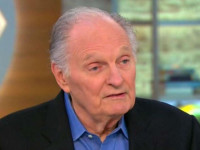
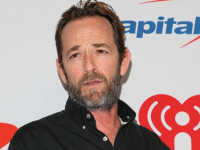










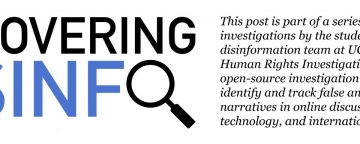

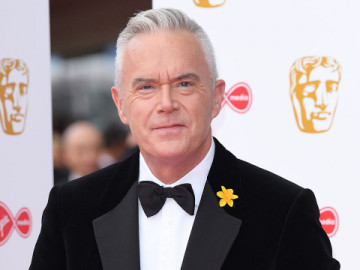

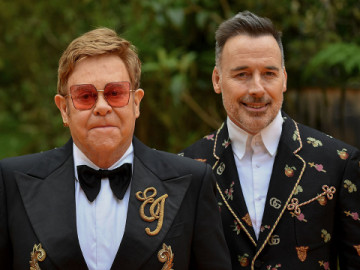
Connect with us